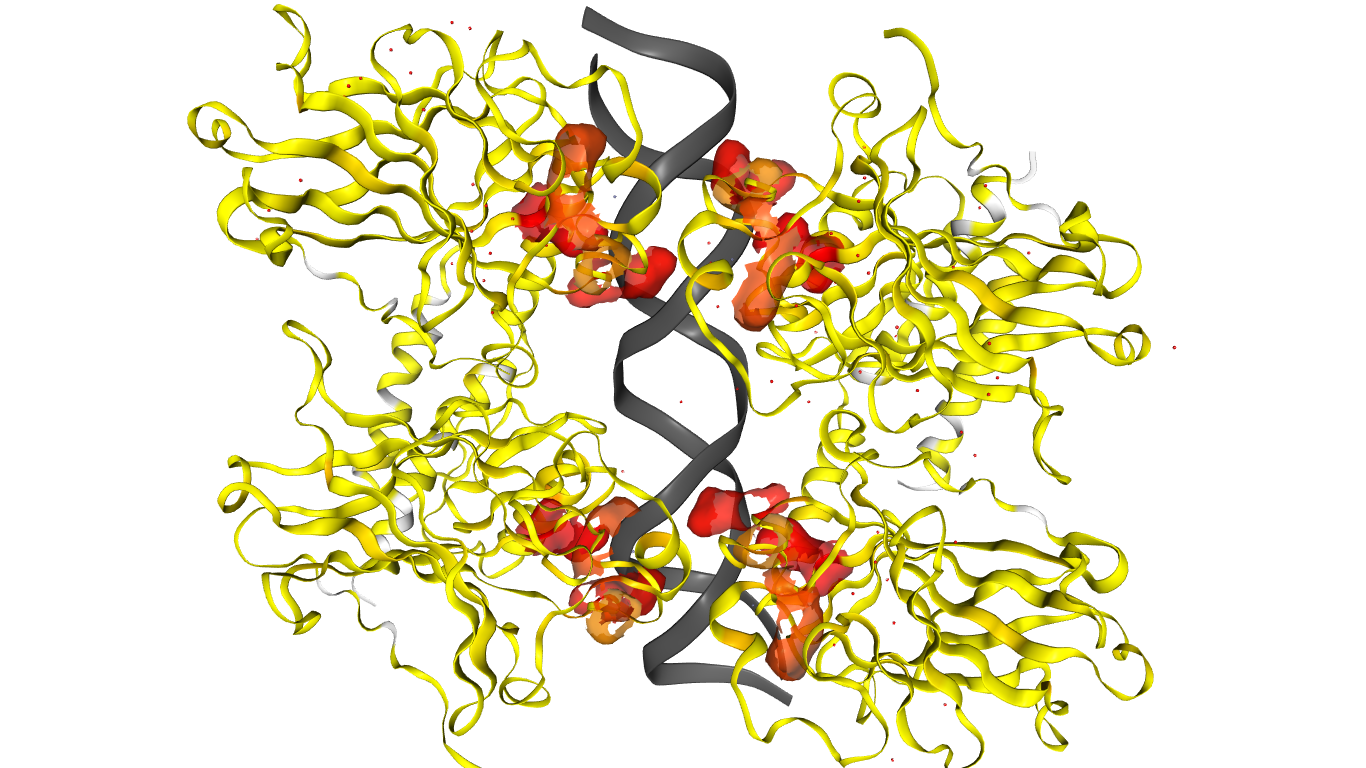Cancer drug design targeted by COSMIC's new 3D system

COSMIC-3D, the most comprehensive system for exploring cancer mutations in three dimensions, is launched today by COSMIC, based at the Wellcome Trust Sanger Institute, in collaboration with Astex Pharmaceuticals, Cambridge, UK. With extensive colourful and helpful visualisations, the new resource can help identify and characterise drug targets as well as support the design of new therapeutics for cancer.
The new tool is set to change the way researchers interact with genomic mutations in order to identify new cancer drug targets.
Available at http://cancer.sanger.ac.uk/cosmic3d, COSMIC-3D provides interactive 3D visualisations of more than 8,000 human proteins displaying cancer mutations. It enables researchers to develop a clearer understanding of which mutations are implicated in cancer progression, and how these mutations impact molecular structure and function.
Significantly, COSMIC-3D displays known and predicted drug binding sites within the protein structure. This displays cancer mutations alongside binding sites with predictions of how likely a pocket is to be successful as a drug target, enhancing the exploration and identification of how mutations impact therapeutic targets.
COSMIC-3D has been designed to directly assist pharmaceutical development. The new resource utilises COSMIC – Catalogue of Somatic Mutations in Cancer, the world’s largest expert-curated human cancer mutation database – and also incorporates structural information from the Worldwide Protein Data Bank (wwPDB).
“Combining cancer genomics data from COSMIC with the human structural proteome provides valuable insights into how cancer mutations affect molecular functions and impact cancer progression. This will enable scientists to better tackle the challenges of developing cancer-specific therapeutics.”
Dr Marcel Verdonk Senior Director at Astex Pharmaceuticals
“This is a hugely exciting addition to the COSMIC family, COSMIC-3D will allow researchers to explore cancer mutations in a completely new way, providing new perspective for precision medicine.”
Dr Simon Forbes Head of COSMIC at the Wellcome Trust Sanger Institute
More information
Selected websites
COSMIC-3D
COSMIC-3D provides interactive 3D visualisations of more than 8,000 human proteins displaying cancer mutations. It enables researchers to develop a clearer understanding of which mutations are implicated in cancer progression, and how these mutations impact molecular structure and function. http://cancer.sanger.ac.uk/cosmic3d
COSMIC - Catalogue of Somatic Mutations In Cancer
A key resource underpinning cancer genetic research, COSMIC provides large high-quality datasets, methods and graphics to scrutinise the genetics causing this disease, giving insights to pharmaceutical design and patient therapies. Built within the world-leading Wellcome Trust Sanger Institute (UK) to support global research, millions of mutations across thousands of diseases can be explored at http://cancer.sanger.ac.uk
Astex Pharmaceuticals
Astex is a leader in innovative drug discovery and development, committed to the fight against cancer and diseases of the central nervous system. Astex is developing a proprietary pipeline of novel therapies and has a number of partnered products being developed under collaborations with leading pharmaceutical companies. For more information about Astex Pharmaceuticals, please visit http://www.astx.com
Wellcome Trust Sanger Institute
The Wellcome Trust Sanger Institute is one of the world’s leading genome centres. Through its ability to conduct research at scale, it is able to engage in bold and long-term exploratory projects that are designed to influence and empower medical science globally. Institute research findings, generated through its own research programmes and through its leading role in international consortia, are being used to develop new diagnostics and treatments for human disease. https://scion-02.sandbox.sanger.ac.uk


